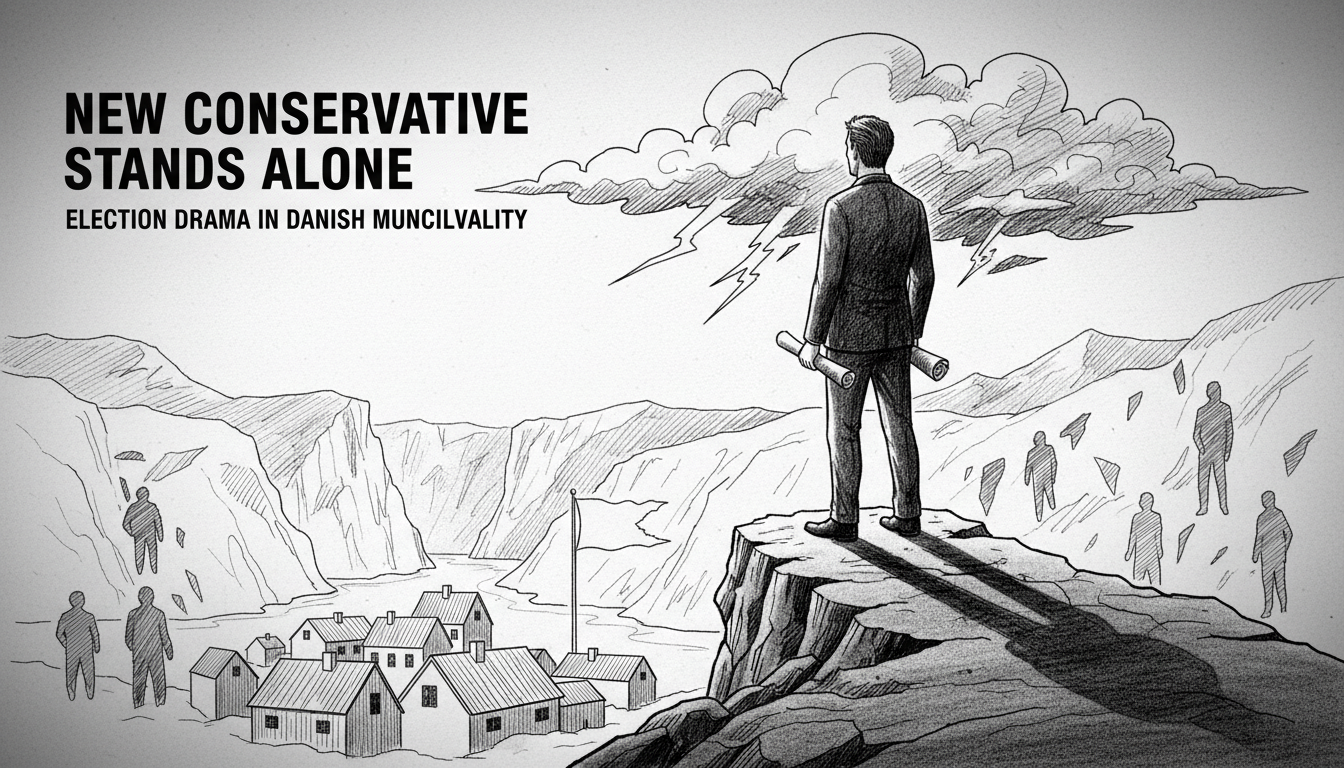Daniel Nyborg Jensen faces a unique political reality in Norddjurs Municipality. He enters the council chamber as the sole Conservative representative after dramatic election night developments. His party initially secured two seats but lost one when their lead candidate abruptly left. Benny Hammer departed following internal disagreements after votes were counted. This leaves Jensen as the only Conservative voice in local government.
Danish municipal politics typically feature diverse party representation. Norddjurs now presents an unusual scenario with single-party representation. Jensen acknowledges the challenge but remains optimistic about his new role. He describes himself as a one-person army with strong local support. The novice politician must quickly adapt to council procedures and collaboration dynamics.
Danish welfare systems rely heavily on municipal governance structures. Local councils manage integration programs, social services, and education policies. Single-party representation could influence how Conservative priorities advance in these areas. Copenhagen integration models often differ from rural approaches like Norddjurs's.
Jensen won't operate completely alone despite the circumstances. Former Conservative council members will continue providing input on relevant matters. Martin Raghner, Mads Jensen, and Niels Skov Pedersen maintain advisory roles according to the new councilor. This creates an informal support network beyond formal council structures.
Denmark immigration policy often intersects with municipal responsibilities. Local integration efforts frequently depend on cross-party cooperation. Jensen anticipates productive collaboration across political affiliations despite his solitary party status. He emphasizes shared community goals over partisan differences.
The situation highlights broader trends in Danish local politics. Party fragmentation and realignment create unexpected governing scenarios nationwide. Voter behavior increasingly produces unconventional council compositions that test traditional cooperation models.
Norddjurs represents many rural Danish municipalities facing demographic and political shifts. These areas often pioneer adaptation strategies that later influence national policy directions. The Conservative party's reduced presence here might signal wider political recalibration.
Jensen expresses gratitude for his predecessors' ongoing involvement. Their institutional knowledge becomes particularly valuable given his newcomer status. This transitional support system could help maintain policy continuity during the council's reorganization period.
Danish society news frequently covers such political transitions as indicators of broader social currents. Local election outcomes often reflect changing public attitudes toward established parties and their platforms. Norddjurs developments merit observation for those tracking Denmark's political evolution.
The new councilor must now navigate practical governance mechanics while representing his party singly. This includes mastering meeting protocols, proposal procedures, and negotiation tactics. His learning curve appears steep but manageable with existing support structures.
Denmark social policy implementation occurs primarily at municipal levels. Individual councilors' effectiveness can significantly impact service delivery and community welfare. Jensen's performance may demonstrate how single-party representatives influence local policy outcomes.
Political veterans monitor such situations for systemic implications. Unconventional council compositions sometimes produce innovative problem-solving approaches. Other times they create governance challenges requiring extraordinary cooperation measures.
The coming months will reveal how this political configuration affects Norddjurs's community development. Local residents await practical impacts on services, infrastructure projects, and integration initiatives. Jensen's ability to advance Conservative priorities while collaborating effectively will determine this experiment's success.

